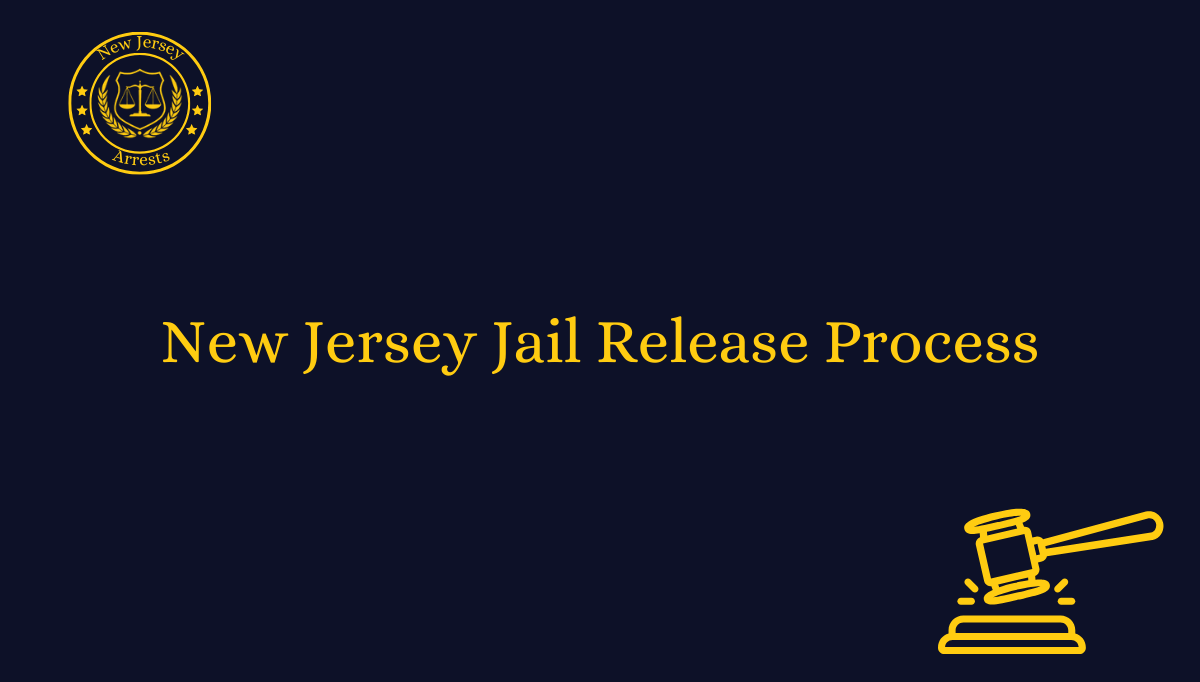New Jersey Jail Release Process
In the state of New Jersey, navigating the legal system can be a daunting task, especially when it comes to the jail release process. Whether someone is facing charges or has been arrested, understanding the options for release is crucial. From bail bonds to pretrial detention, New Jersey offers various avenues for individuals to secure their freedom while awaiting trial.
Understanding Bail in New Jersey
Bail serves as a mechanism to ensure that individuals accused of a crime appear for their court proceedings. Historically, bail was often set at a monetary value, which could be paid to secure release. However, in recent years, New Jersey has undergone significant bail reform to address concerns about fairness and equity in the justice system.
Pretrial Detention and Release Options
When determining whether to release an individual before trial, judges consider several factors, including the severity of the alleged offence, the defendant’s criminal history, and the likelihood of them appearing in court. Depending on these factors, various release options may be available, ranging from cash bail to release on recognizance.
Bail Bonds in New Jersey
For many individuals, securing release through a bail bond is the most feasible option. Bail bondsmen act as sureties, pledging money or property as bail on behalf of the defendant. In return, the defendant pays a fee, typically a percentage of the total bail amount, to the bondsman.
Cash Bail vs. Bail Bonds
While cash bail requires the full amount to be paid upfront, bail bonds allow defendants to secure release by paying only a fraction of the bail amount. However, both options come with their own set of advantages and disadvantages, which defendants should carefully consider before making a decision.
Release on Recognizance
Release on recognizance, or ROR, is another option available to defendants in New Jersey. With ROR, individuals are released from custody without having to pay bail, based on their promise to appear in court for all scheduled proceedings. This option is typically reserved for low-risk defendants with strong community ties.
Conditional Release
In some cases, defendants may be eligible for conditional release programs, which impose certain conditions on their release. These conditions may include regular check-ins with court officials, drug testing, or participation in counselling programs. The conditional release aims to ensure public safety while allowing defendants to remain in the community.
Electronic Monitoring
Electronic monitoring is a form of conditional release that involves wearing an ankle bracelet equipped with GPS technology. This allows authorities to track the defendant’s movements and ensure compliance with court-ordered conditions. While electronic monitoring can be an effective tool for supervision, it also raises concerns about privacy and surveillance.
Specialized Courts and Programs
In recent years, New Jersey has implemented specialized courts and diversionary programs to address the underlying issues driving certain offences. These programs aim to provide defendants with access to treatment and support services, rather than incarceration, helping to break the cycle of crime and recidivism.
Legal Process for Release
The process of securing release from jail in New Jersey involves several steps, including bail hearings, negotiations with prosecutors, and court appearances. Defence attorneys play a crucial role in advocating for their client’s release and ensuring that their rights are protected throughout the legal process.
Challenges and Considerations
Despite efforts to reform the bail system, challenges persist, including disparities in access to release options and the impact of pretrial detention on individuals and communities. Addressing these challenges requires ongoing collaboration between lawmakers, law enforcement, and community stakeholders.
Recent Developments and Reforms
In recent years, New Jersey has made significant strides in reforming its bail system, including the adoption of risk assessment tools to inform release decisions and the expansion of diversionary programs for nonviolent offenders. These reforms aim to create a fairer and more equitable justice system for all.
Community Support Services
For individuals released from jail, access to community support services is essential for successful reintegration into society. From housing assistance to job training programs, these services help to address the underlying factors that contribute to criminal behaviour and reduce the likelihood of reoffending.
Future Outlook
As New Jersey continues to evolve its approach to bail and pretrial release, there are opportunities for further innovation and improvement. By investing in alternatives to incarceration and addressing systemic inequalities, the state can create a more just and humane criminal justice system for generations to come.
FAQS
Explore our extensive Frequently Asked Questions (FAQ) section to find answers to common queries about Arrests NJ.
What is the process for jail release in New Jersey?
The jail release process in New Jersey involves several steps. First, the arrested individual is taken into custody and processed at the police station. Then, they may have to wait for a bail hearing, during which a judge determines if bail will be set and at what amount. If bail is set, the individual can post bail themselves or seek assistance from a bail bondsman. Once bail is posted, the release process begins, and the individual is free to leave the jail.
Can I post bail for someone else in New Jersey?
Yes, you can post bail for someone else in New Jersey. However, there are certain requirements and responsibilities associated with being a bail bond co-signer. You will need to provide collateral and ensure that the defendant fulfils their obligations, such as attending court hearings and complying with any other conditions set by the court.
What happens if someone cannot afford to post bail in New Jersey?
If someone cannot afford to post bail in New Jersey, they have the option to seek assistance from a bail bondsman. A bail bondsman can provide a surety bond, which allows the defendant to be released from jail by paying a percentage of the total bail amount. The bail bondsman takes on the responsibility of ensuring the defendant’s appearance in court.
How long does the jail release process typically take in New Jersey?
The jail release process in New Jersey can vary depending on various factors, such as the time it takes to process the arrest and the availability of a judge for the bail hearing. In some cases, the process can be completed within a few hours, while in others, it may take longer, especially if the arrest occurs outside of regular business hours.
What happens after someone is released from jail in New Jersey?
After someone is released from jail in New Jersey, they are required to fulfill their obligations as set by the court. This may include attending all scheduled court hearings, complying with any conditions of release, such as drug testing or travel restrictions, and avoiding any further legal trouble. Failure to comply with these obligations can result in the revocation of bail and the individual being returned to custody.
Are there any alternatives to jail release in New Jersey?
Yes, there are alternatives to jail release in New Jersey, such as pretrial services programs. These programs aim to provide support and supervision to individuals awaiting trial, without requiring them to be held in jail. The specific alternatives available may vary depending on factors such as the nature of the charges and the individual’s criminal history.







